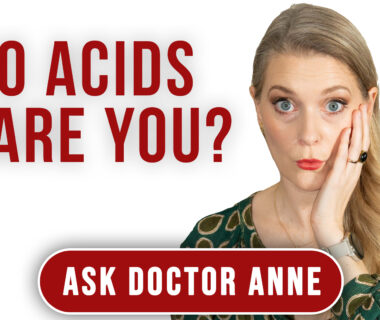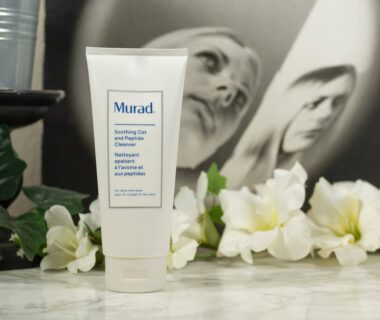ADVERTISEMENT INFO: SOME PRODUCTS MENTIONED IN THIS POST ARE PR (GIFTED) AND LINKS USED ARE AFFILIATE LINKS. I RECEIVED NO MONEY TO WRITE THE BLOGPOST. PLEASE READ DISCLAIMER
Ectoin is an ingredient that I only saw recently in my skincare products, for example when I reviewed the Geek and Gorgeous Hydration station that contains Ectoin as featured ingredient for skin protection. (More info: Geek and Gorgeous Hydration Station review)
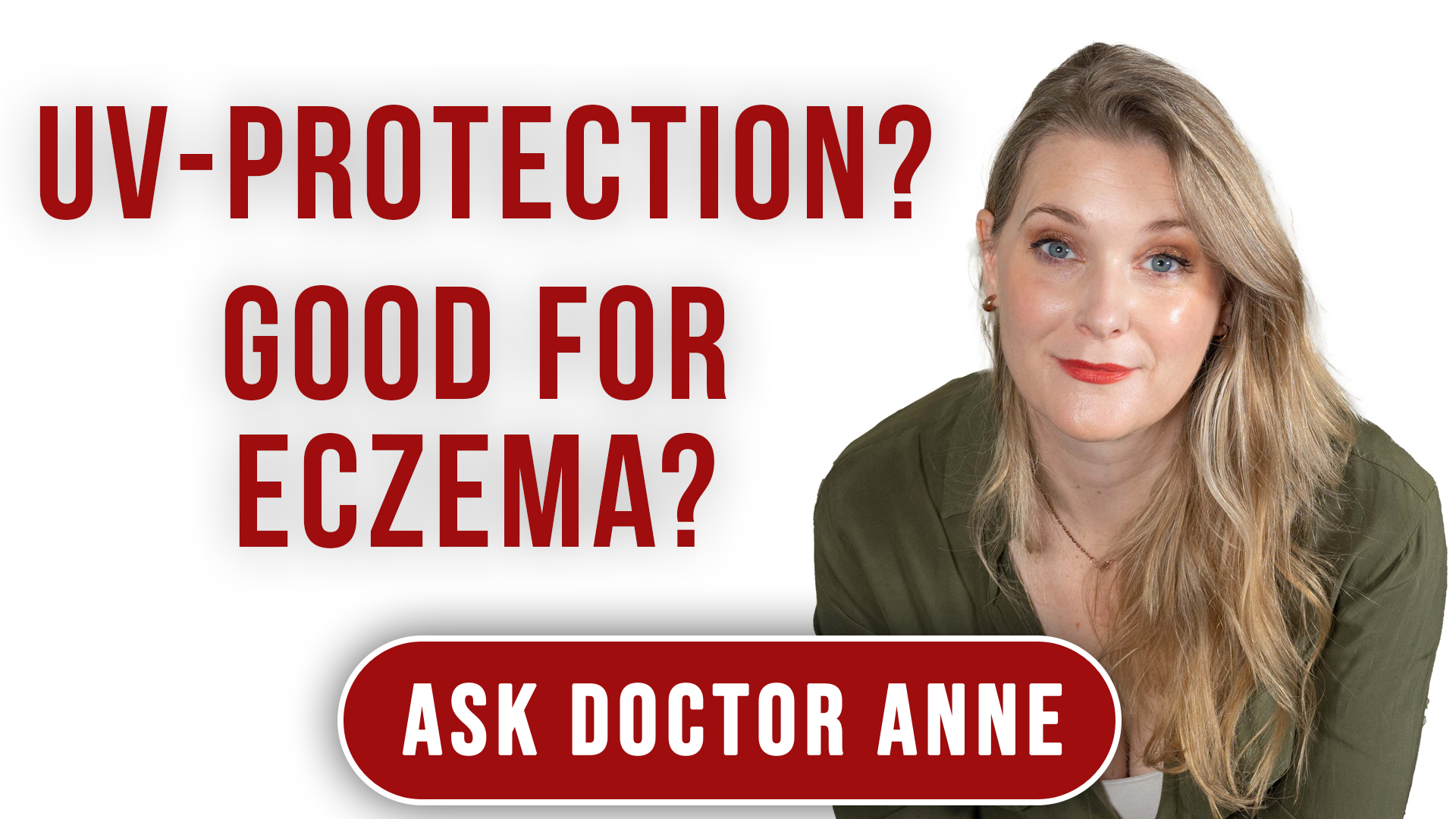
That made me curious, after all I am always excited to learn more about skin beneficial ingredients, so I sat down to look through the data available on the use of Ectoin in dermatology and subsequently skincare.
What did I find? Let’s talk!
What is Ectoin?
Ectoin is a so-called extremolyte, a name given to a group of substances produced by bacteria that live in extreme conditions like high salt concentrations, extreme heat or intense UV radiation. By structure it is an amino acid and it sometimes also goes by Ectoinum or L-Ectoine.
The way it works is by accumulating in high percentages outside either the bacterium or the structure it is protecting, forming a film around said structure to prevent dehydration without interfering with the cellular processes. Basically a layer that still allows the bacterium to do everything it wants to do, but prevents it from dying.
What is Ectoin used for?
Apart from being used in skincare, we will come to that in a minute, and from being used by bacteria, Ectoin has a long history of being used in ophthalmology to help with dry eyes, the effects of seasonal allergies and with healing after a surgical intervention or a trauma to the eyeball.
There is also some preclinical (meaning from the lab, not from humans) data on it being used on lung cells to prevent irritation after exposure to pollution particles, where it works by stabilizing the lipid layers, and on gastrointestinal cells to lessen Irritable Bowel Syndrome again by reducing the effect of the inflammatory cascade.
Out of these though only the use in ophthalmology has data on the effects in actual humans.
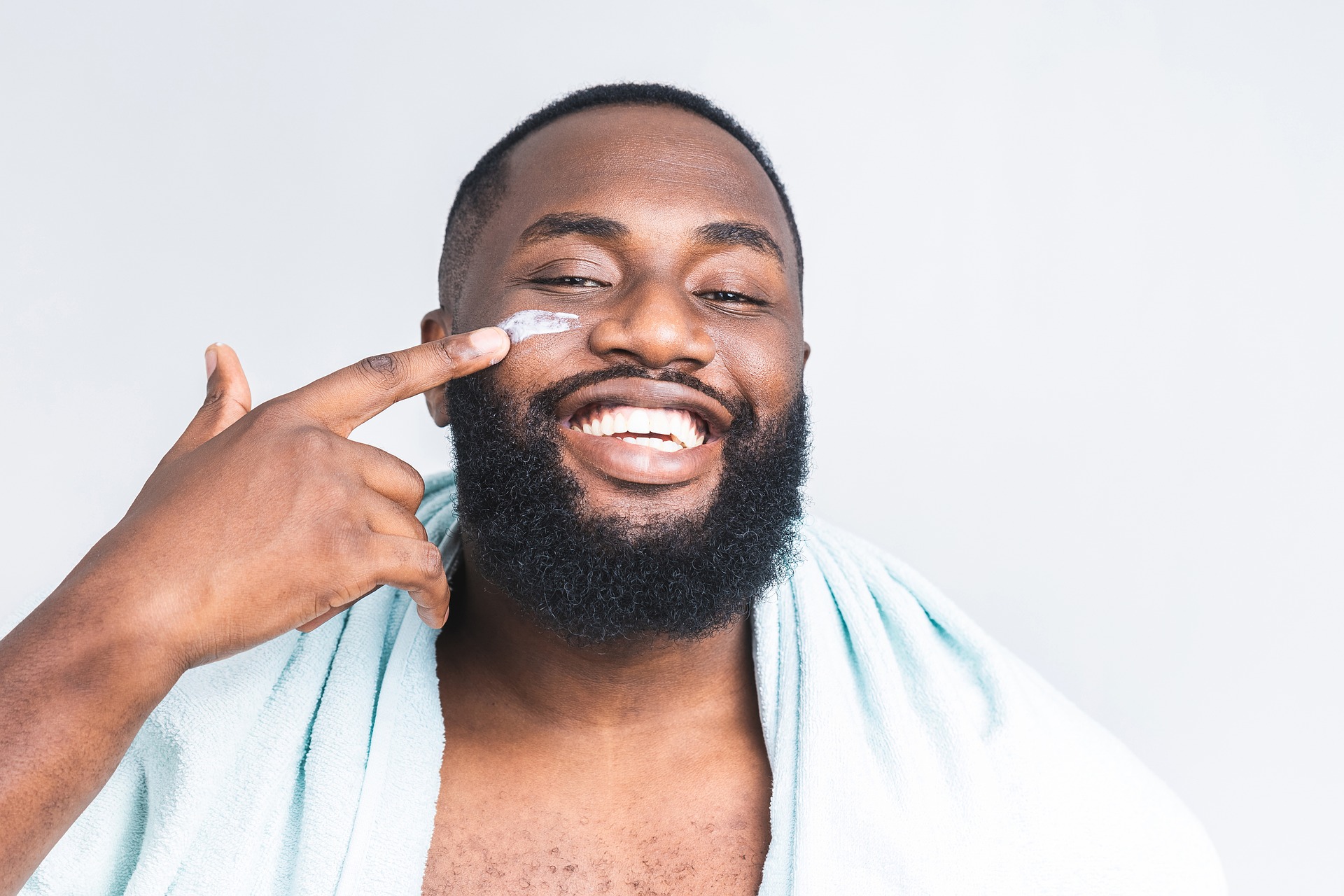
Image by Adeelch from Pixabay
What effect has Ectoin in the skin?
First and foremost, Ectoin is a moisturizing ingredient that prevents Transepidermal Water Loss (More info: Is your skin barrier damaged?). On top of that it is currently recommended for the use in atopic eczema, especially in children, where it positively influences skin dryness, pruritus and dermatitis and, when used together with other medication, reduces the need for corticosteroids.
It has also shown to be as effective as Dexpanthenol in reducing retinoid dermatitis in people undergoing Isotretinoin therapy. (More info: The benefits of Dexpanthenol in skincare explained)
It also has a protective effect against inflammation triggered by environmental stress and pollution as well as a protective effect against UV radiation, at least when looked at in the lab, but, just to be crystal clear, it does not replace sunscreen and sun smart behavior! (More info: Do you need anti pollution skincare?)
Which concentration of Ectoin is best?
The recommended maximum concentration of Ectoin in cosmetics is 2%, so you will usually find between 1 and 2 % in your products. Compared to that, 5.5 to 7 % are what is used in formulations for the treatment of atopic eczema, but they are over the counter medication, so not skincare.
At the same time you can’t just take the effects you get from a 7% formulation when treating atopic eczema and assume that 2% will have the same soothing effect – it might, but we don’t have as much data.
So basically, up to 2% is what you will get in skincare and if you want to treat a medical condition, go for the otc version.
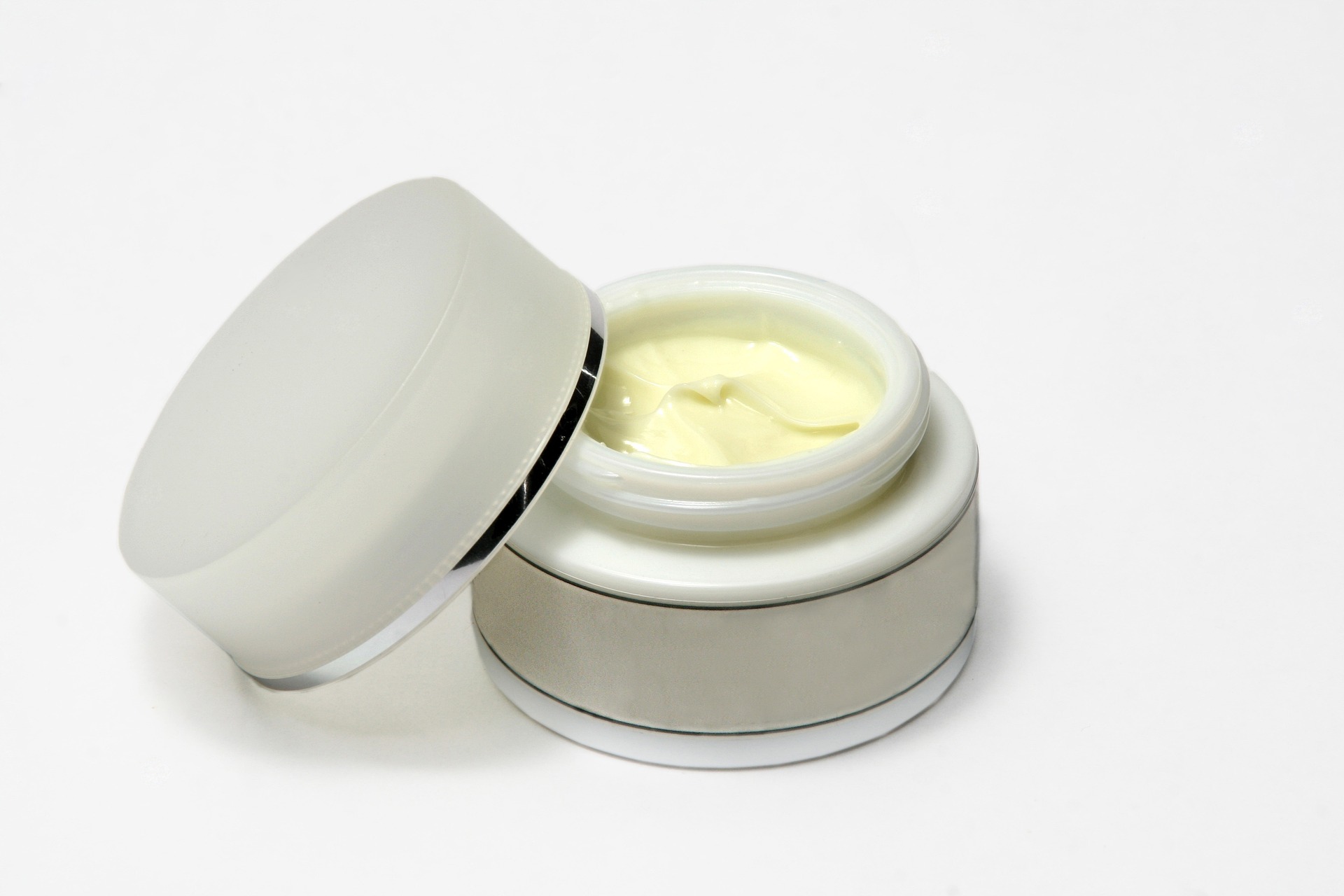
Image by andreas160578 from Pixabay
Is Ectoin safe?
Ectoin is considered safe for everyone including people pregnant and breastfeeding, with the obvious exception that you can be allergic to anything. There are no reports of adverse events even with prolonged usage in higher concentrations and no reports that it might negatively affect other ingredients you pair it with.
Is Ectoin good for acne?
While the antiinflammatory effect could be presumably helpful in people suffering from acne, it is not specifically studied for this purpose, so the only thing we know is that it is helpful to mitigate the side effects of Isotretinoin therapy, which in itself is a very good thing as many people stop their treatment because of them. (More info: How to use Retin A with minimal irritation)
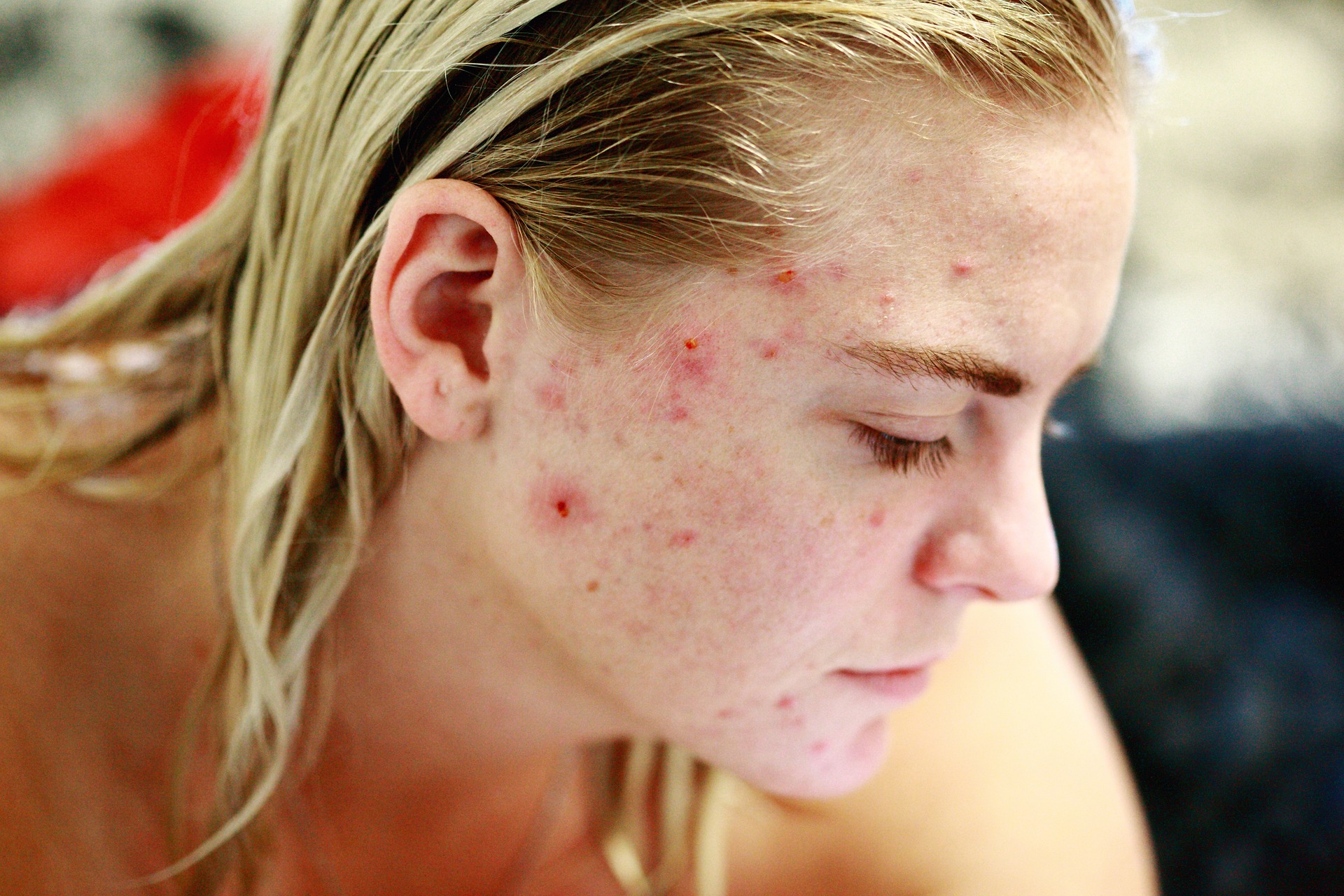
Image by Alexander Grey from Pixabay
Is Ectoin good for eczema?
Yes, Ectoin is recommended as supportive treatment in people suffering from atopic eczema and has, especially in children, shown to reduce the dryness, pruritus or itching and in general the need for corticosteroids in the treatment. It is used at concentrations higher than the ones available in skincare though.
Products with Ectoin
I have personally tried two products with Ectoin, bot using it at a concentration of 1%: The Geek and Gorgeous Hydration Station Gel Cream (50 ml for 8,80 €, full review here) that combines the 1% Ectoin with 6% Glycerin and is a lovely, hydrating and lightweight moisturizer that I can recommend for oily skins and for the summer months, and the Balea Expert Day Cream (50 ml for 5,95 €, full review here) that combines it with 3% peptides but that I personally don’t enjoy as much texture wise.
I also discovered that my eye drops contain Ectoin, but as that isn’t the topic of today’s post, I will leave a few more product suggestions underneath.
TL;DR
Ectoin is an amino acid produced by bacteria to protect them in harsh living conditions. It has been used in ophthalmology for its antiinflammatory and protective characteristics and has also shown to help against inflammation and irritation in atopic eczema and retinoid induced dermatitis.
While medication uses 5-7%, skincare can contain up to 2% max, so you can’t say for sure if that will give you the same protective effect, but as it is well tolerated, there is probably no harm in trying it.
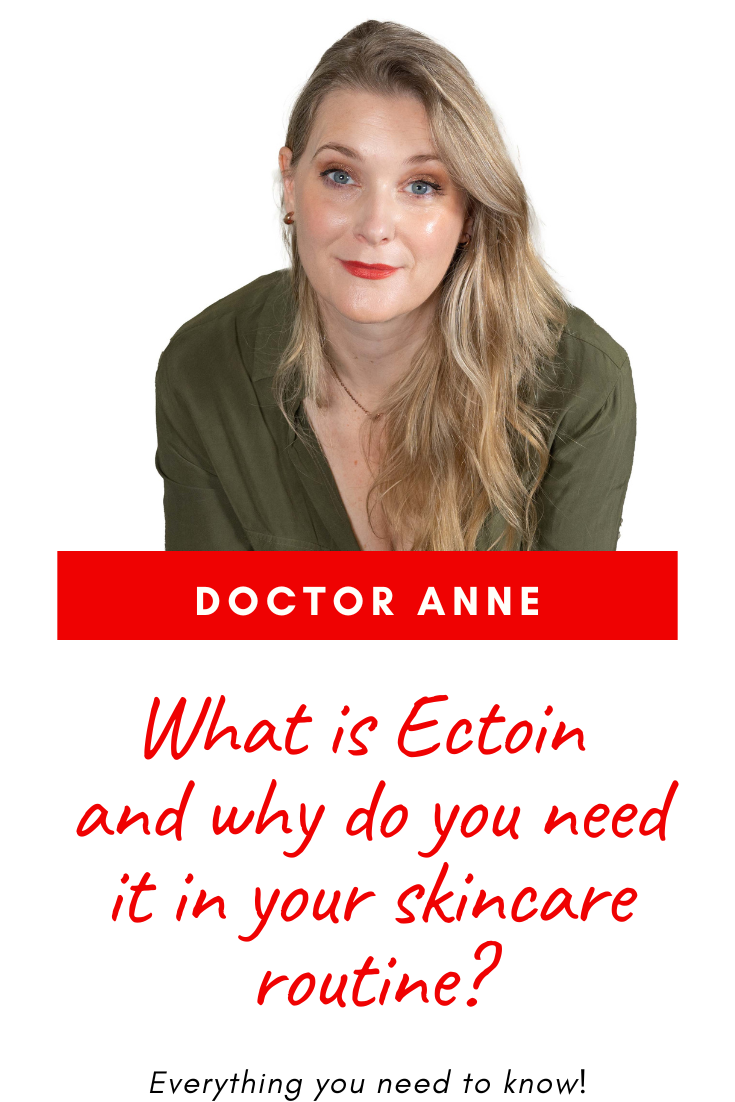
Shop the post
Don’t forget to check out the Discount Code Page on top if you want to save some money on your next skincare purchase.
If you want to get a vote in the next Ask Doctor Anne Topic, Ingredient Spotlight or product I review, don’t forget you can head over to my Patreon account to get more involved!
